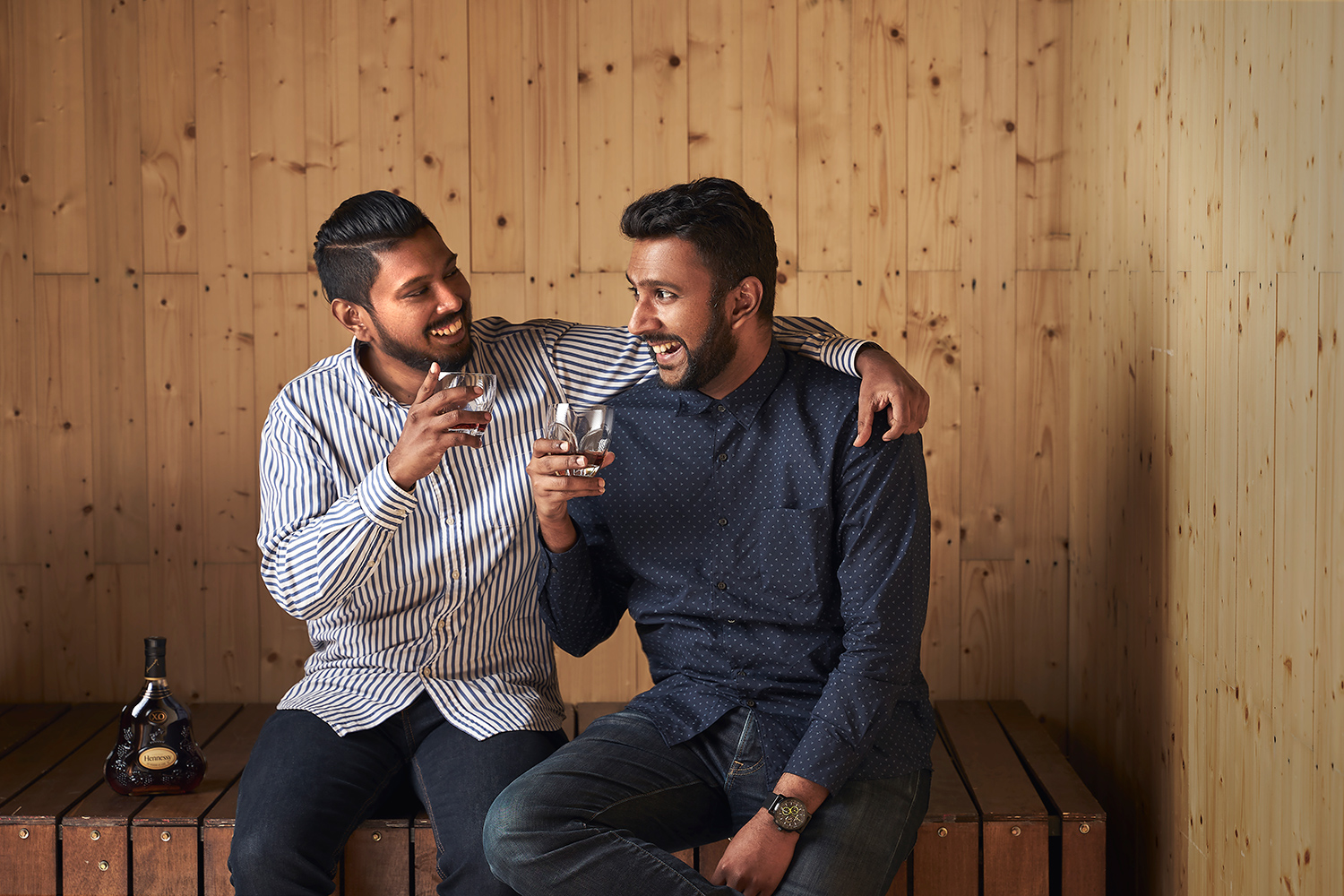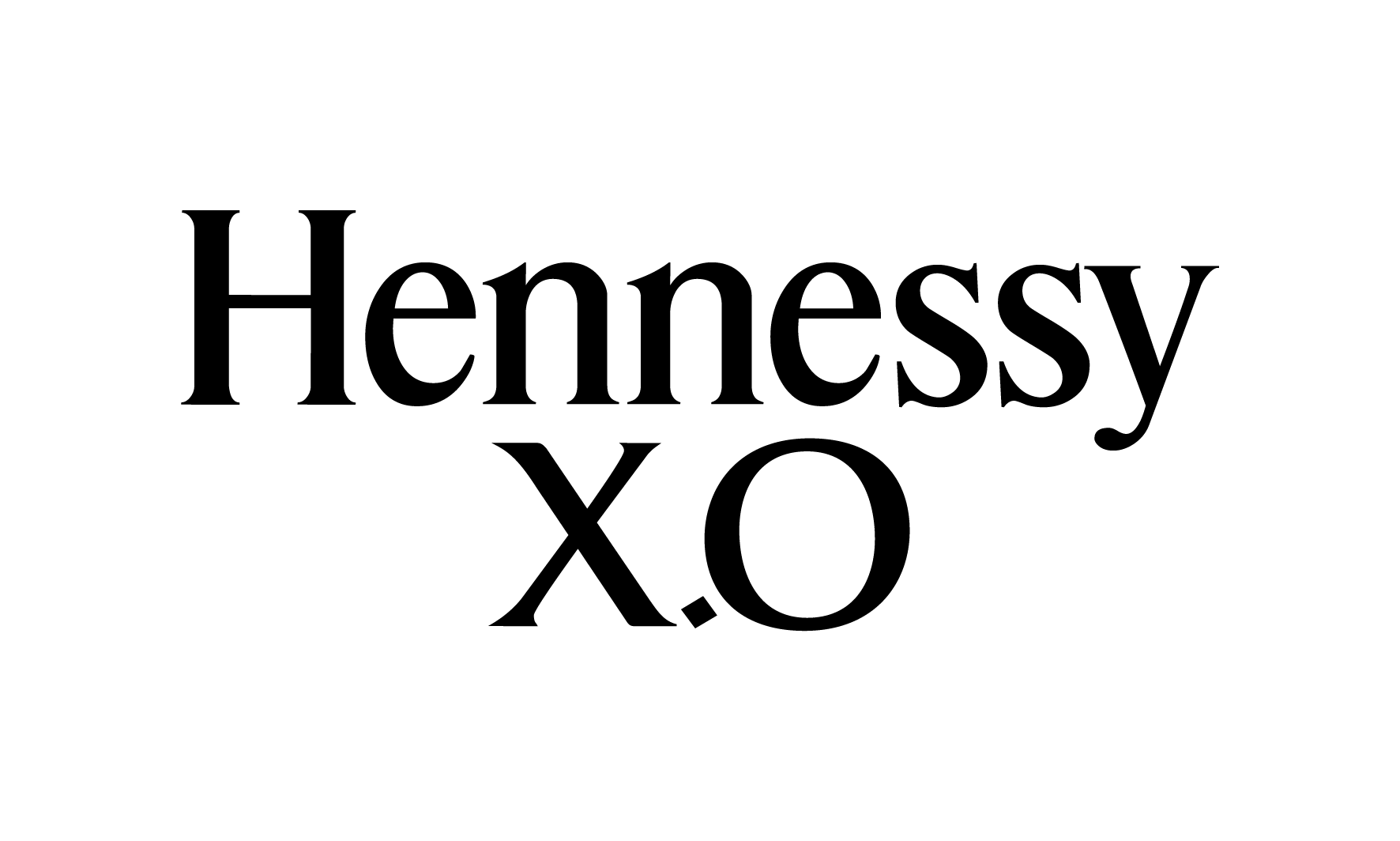
In 1870, Maurice Hennessy created Hennessy X.O for his circle of friends and introduced a new style of cognac. Deep and powerful, the eaux-de-vie of this Hennessy X.O cognac are aged in young barrels and marked out by their power and energy, but also by their capacity to achieve a great roundness through time. To this day, Hennessy X.O is an icon of success and odyssey; each sip celebrates bonds that bind, creativity in freedom of expression and commitment to passion. Discover more of Hennessy X.O at the official website here.
Brothers Charles and Patrick Devendran of the Ironwoods group share how their upbringing influences the way they built and sustain their company.
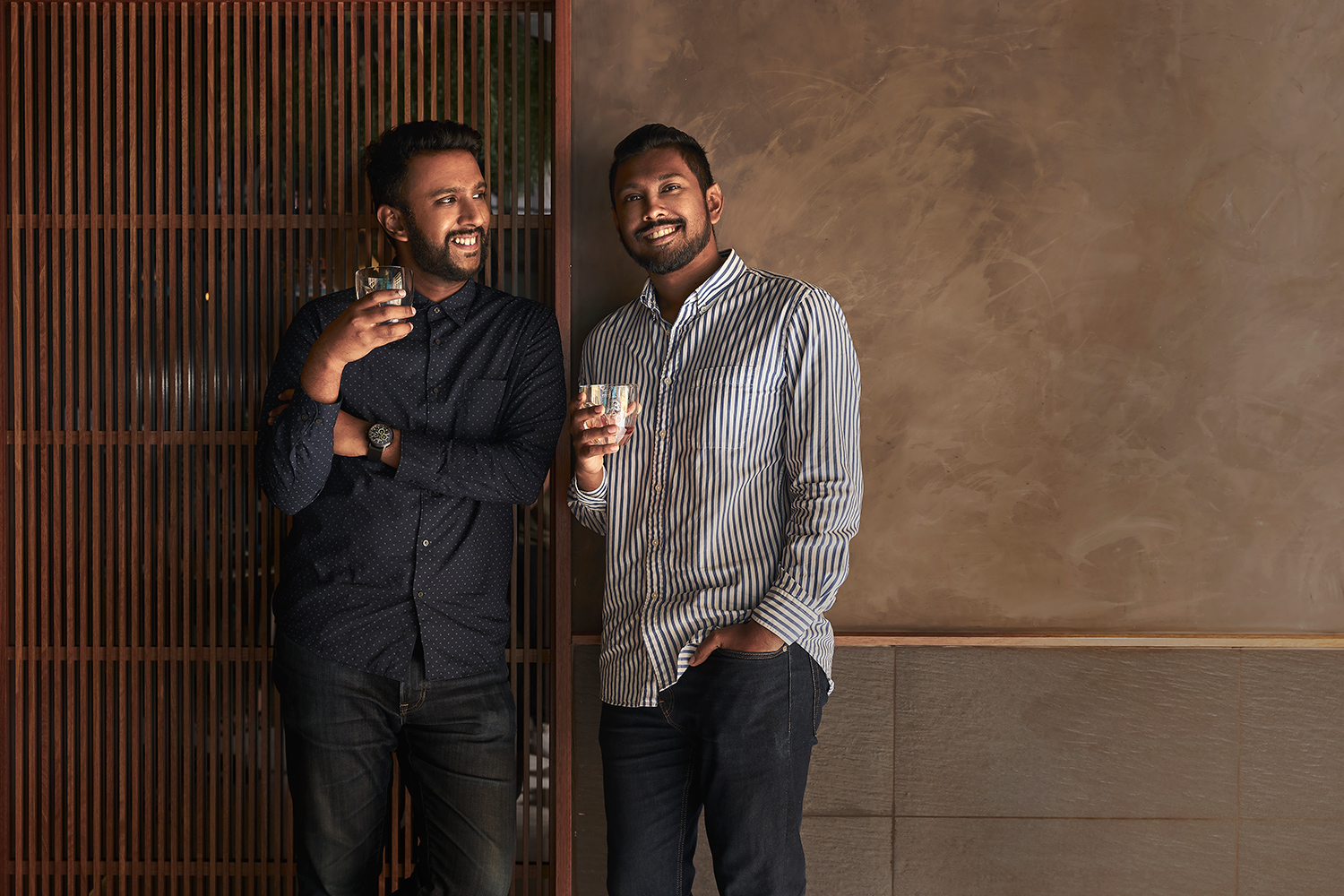
After stepping into Poseidon Reserve Caviar & Oyster Bar at Atlas Gourmet Market in Four Seasons Place for our interview, Patrick makes a beeline for the kitchen to ready a quick bite for us – and it’s clear to see which brother was the one who was more naturally inclined into exploring the fun and challenging world of the F&B industry.
“If we let him, he’ll just be there forever,” his brother Charles says jokingly, before heading over to the seafood bar to fetch Patrick.
Charles and Patrick Devendran come from the humble town of Sandakan, where fresh seafood was ubiquitous and part of their everyday life. Their journey in building their company, Ironwoods, began when they started importing seafood.
“My brother tried working but ended saying that ‘it’s not good for me’, then we decided to sell fish,” Charles says simply. “Our parents were all: ‘We send you off to study advertising and you want to sell fish?’”
“There’s a saying in Sandakan, that if you don’t study, you end up selling fish in the market, because it’s such a common trade in Sabah,” Patrick explains before adding jokingly: “They were probably thinking ‘Where did we go wrong with you?’ But once we started to establish the trade between the UK and other countries we eventually started to explore other imports such as honey, truffle oil, coffee, tea and other artisanal products.”
“It all comes back to us growing up in a small town,” recalls Charles. “All we had was family, good friends, good food – and that’s it. In Sabah we didn’t have cinema and the first McDonald’s only opened in 2011 after we came to KL. Eating fresh food at home really shaped a lot of our affinities for fresh food and artisanal products – though coming here also really opened our eyes.”
The brothers’ persistence and ambition eventually paid off – having introduced several brands under the Ironwoods name, from the finest jewels of the sea at Poseidon Reserve Caviar & Oyster Bar, to Teaology for those who like to sit back and relax with a hot cuppa.
When it comes to delegating tasks, it was clear that Patrick was the one who preferred to be more hands-on and experimenting, while Charles stood out in taking the lead on sales.
“Sure, we delegate our tasks,” Charles says immediately, before gesturing to his brother. “He does 95% of the work.”
“It’s split equally,” according to Patrick. “Well, I’m not so much of a creative person. All the designs and ideas are usually passed onto him.”
“Oh come on,” Charles pokes at Patrick’s modesty. “We work on most of them together. He’s the brand most of the time, but we support each other and we work together.”
In mere minutes, we soon find out a very interesting fact about Patrick that also speaks of how working together and trust is imperative in his working relationship with Charles and his team.
“I’ll be the one sourcing the products,” he begins. “It’s very important, and he does all the designs and ideas, and we try to come to an agreement on the price point. This is all crucial because I don’t really eat seafood, and I have to rely on him to try it and give feedback.”
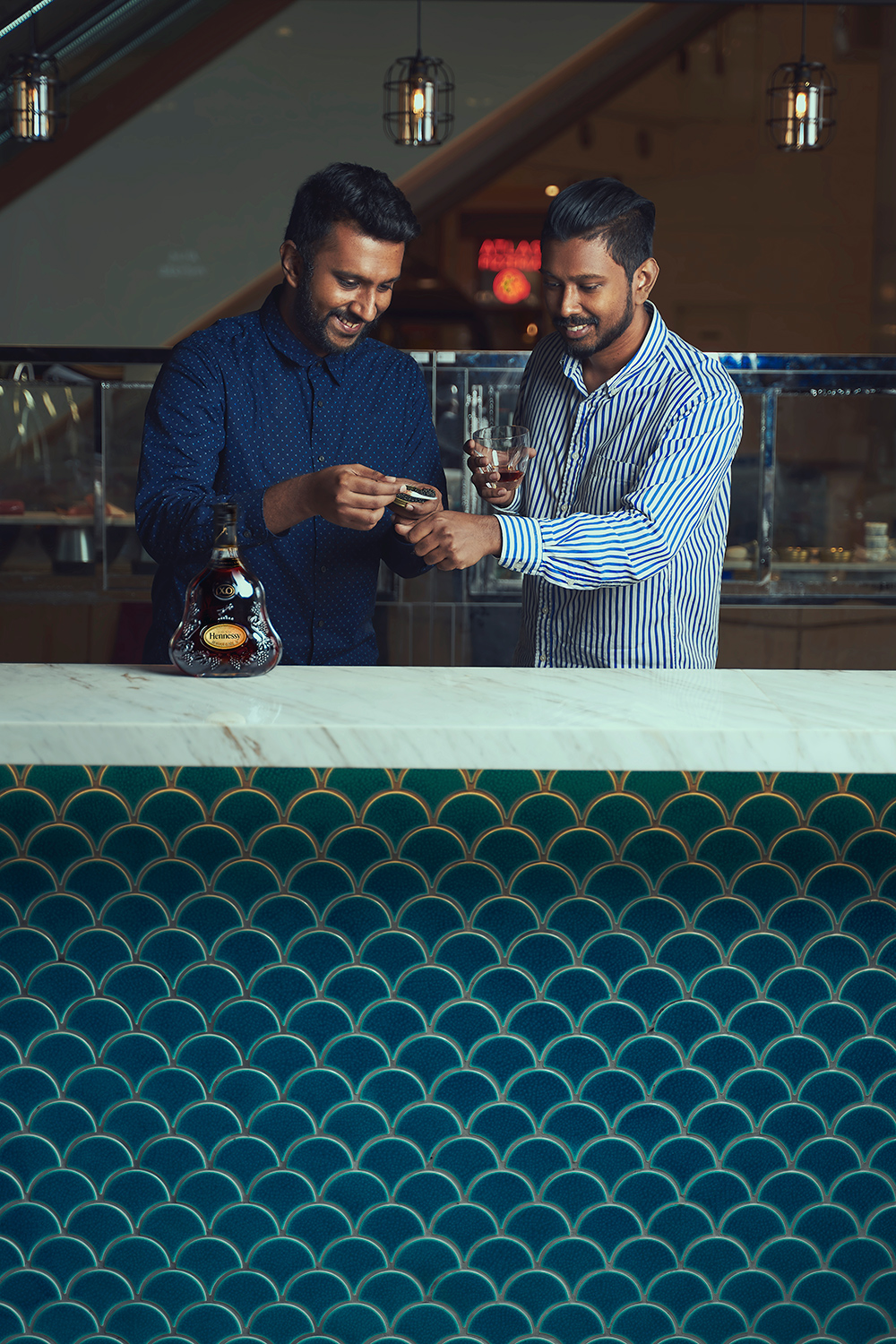
Different points of view
Being able to work together in harmony wasn’t always smooth sailing for Charles and Patrick though, despite already having a close bond as brothers. Approaching the business from different points of view also affected the way decisions were made between the two.
“Initially it was really tough,” Charles recalls. “We were just always arguing with each other in order to find a middle ground. It was a lot of ‘I want it this way’ and ‘I want it that way’.”
“I would sell it from a customer’s point of view,” says Patrick. “For example I could say that I’d pay RM20 for that, and he’ll say ‘no, no, as a business we need to allocate a certain amount, then do this and that. It’s good that we always manage to come to a middle point, but over the years we decided to delegate tasks between sourcing and costing. We have a delicate balance. We do overlap in terms of managing outlets and events.”
Charles also agrees when it comes to using time to gradually build a good working relationship, and how compromising control would eventually come into play in sustaining their chemistry. “I’d say it took us many years to develop a good chemistry,” he says. “See, we’re brothers, and aside from business, it was all perfect. But as working partners specifically, it really took time for us to find that balance, and how to sacrifice certain things such as control.”
“Everyone wants control,” Patrick continues. “It takes time for people to learn how to relinquish control.”
“Well, we made it this far!” Charles laughs.
Where we’re going together, that’s the most important. Who gets what they want is besides the point, as long as we’re going in the same direction – versus going in different directions.”
The bonds we have with our family are the first relationships we have in life, and are the models that play a vital role in shaping our character, actions and mentality. This is no different for Patrick and Charles, who owe it to their parents for instilling lessons in humility and reconciliation from an early age.
Family is everything
“I think a large part of why we work so well is credited to our parents,” Charles expresses, and talks about how his father influenced the way they sort out disagreements. “They really kept the family values for us all the way. Our dad used to get very upset every time we fought whenever we were younger.”
“It was borderline crazy!” Patrick exclaims. “When we fought, our dad would end up saying ‘go hug your brother now. Find your brother, make up and hug him now. I want to see it.’ Then we would relent and go ‘ah, fine!’”
“It’s all that conditioning and growing up that way all the way until uni that really helped us to see the bigger picture, the goal, the vision,” Charles elaborates. “Where we’re going together, that’s the most important. Who gets what they want is besides the point, as long as we’re going in the same direction – versus going in different directions. We managed to develop that over time.”
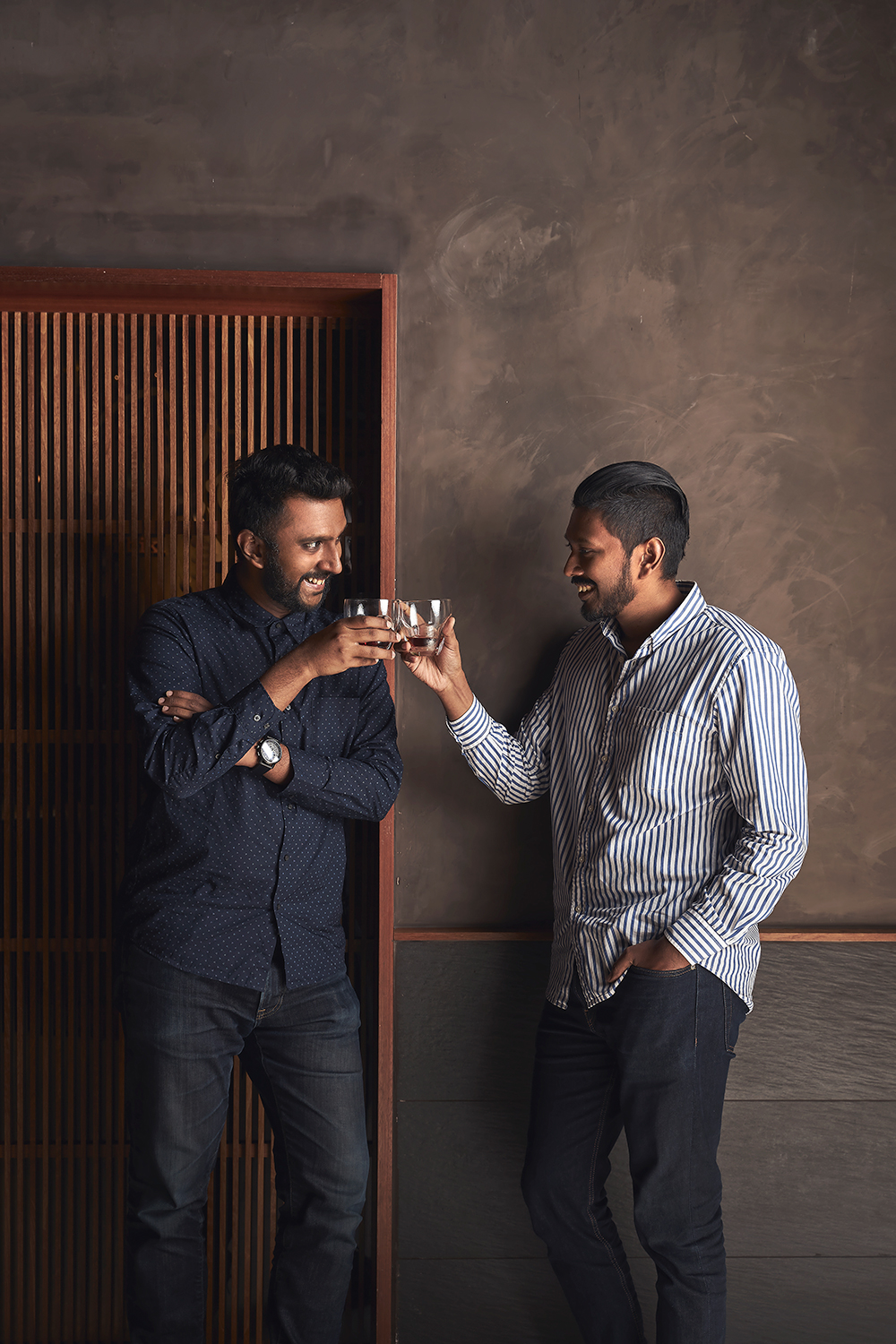
Business partners who aren’t related will inevitably get into fights or disagreements over certain matters of the company, but usually it can be solved with some space and time apart from each other. However, Patrick and Charles aren’t able to relate especially since they live together. Eventually they both had to learn some degree of patience with each other when the going gets tough.
“I guess with most companies and business partners – and anyone who just does business together, you can kind of slowly break away, put up this wall and stop talking to each other,” Patrick says about partners who need to pull away for a while when things go awry.
“As siblings, I have to go home and see his face, but it ends up along the lines of ‘Dude, do you want to get McDonald’s for dinner?’ If we weren’t brothers, we can say ‘I don’t want to talk to you until I’ve cooled down’, but we don’t have that luxury of giving each other space since we live in the same house. We’ve cultivated a sort of tolerance.”
“It became our life. Business is our life,” tells Charles. “We’re almost always talking about business, but we still do other things out of work such as watching Netflix together or gaming.”
There’s a kind of advantage when you run a company with another person – both of you bring different qualities to the table and supply your respective advantageous strengths to help benefit and grow the business. It’s a fine play of completion and balance, like Yin and Yang. However, it’s not always easy to express your admiration for each other, until you’re put in the spot.
“Looking good as a business is one thing, but what makes people come back is the soul of the business, and the soul of the food.”
“You go first,” Charles immediately tells his brother with a wide grin, after being asked what strengths did they see in each other that helps to benefit the company.
“He’s way better with organising,” Patrick shares straightaway. “Especially when it comes to events and design. I can get the event, but in terms of organising everything out I usually hand it over to him. Anything to do with social media, I pass it to Charles. It’s just not something I can really do. I know what to do – but it’ll probably just be me typing out a caption, and 45 minutes later I’d be deleting everything. I don’t really have an eye for design.”
Best of both worlds
It takes Patrick a moment to think of the other good qualities that his brother has, providing much amusement for Charles who says to him: “Tough question, huh? It’s a tough question, man!”
“He’s also a lot more patient in dealing with our guests,” Patrick admits, to which Charles jokingly adds: “Patient with you too!”
“Yeah, patient with me and the people we have to work with,” says the former. “He’s more diplomatic. To me, if you don’t want it, then okay, just go away. He’s also the go-to man when it comes to pricing, being more price-sensitive”
“He’s definitely more charitable,” Charles agrees. “If he can charge you nothing, he’ll charge you nothing. Okay it’s not that bad but you get what I mean.”
Talking about this topic is especially excitable and interesting for Charles, who expresses that this is the first time he’s hearing all of this from his brother. He also emphasises how it can be tough talking about each other’s strengths and acknowledging them.
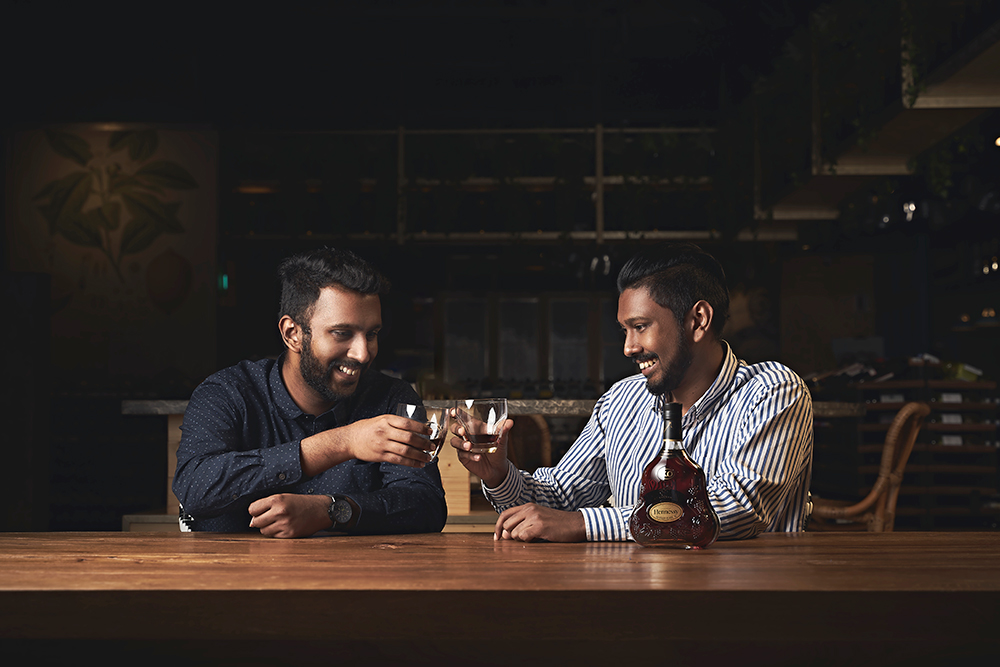
“My brother is really good at sourcing ingredients,” he says about Patrick. “It takes him a lot of time. Even with the smoked salmon we shared with you from Scotland – he literally searched the heck out of Google for the best smoked salmon in Scotland, and eventually found two sources. They were both about 100 years old and produced traditionally-smoked salmon. He’s also really persistent, which I think enhances his talent in sourcing. He also never settles for less.”
Charles then turns to Patrick and says: “You always look for the best product at the best price.”
The former stops short before expressing his second thoughts about how his brother approaches pricing once again. “Maybe on the best price I’m not too sure,” he laughs. “Maybe you’re giving suppliers a good time!”
Jokes aside, one can easily tell how grateful Charles is to have his brother helm the sourcing of their products in a heartfelt statement to how Patrick, in more ways than one, is sort of the heart of the company.
“Looking good as a business is one thing, but what makes people come back is the soul of the business, and the soul of the food,” Charles says. “That’s credit to him. He’s no chef, though he cooks better at home compared to me. When it comes to running our seafood bar, he can take one look at the menu and he’ll go in and start doing his own thing. He’s always on about how the business should still run even if it’s just him at the bar.”
In restaurants, bistros, and cafés, it’s always easy to place the weight on a chef’s shoulders. However, Patrick expresses his passion and respect for the job, bringing to light on how they, even as business owners who don’t necessarily spend majority of their time in the kitchens, should also be able to sustain their restaurant even during emergencies.
“I believe that if the chef doesn’t turn up to work, we’re still able to manage on our own and replicate some of the dishes,” Patrick states. “Take our smoked salmon sandwich – if I have good cream cheese, good bread, good vegetables, great salmon – you can still replicate something great even in a worst case scenario.”
Charles also talks about his brother’s ability to plan in the long term, and how small selfless acts in the present can benefit the future.
“He is visionary, definitely, as a human being,” Charles admits. “If he wasn’t, there’s no way he can be charitable – and I think that ties with each other. He can look at giving a sandwich away for free now in a certain situation, and how that can affect us positively in the future.”
When talking about if they would go into business together if they weren’t brothers, both of them agreed that it would be a tough question to answer if they were in the preliminary stages.
“I think being brothers really opened doors to so many other things. We often think of each other first when planning future businesses.”
“In most cases it’s 50-50 when you’re in a partnership with someone,” Charles shares. “It’s so different. When you’re just starting or before you start working together, you think it’s going to be so cool and exciting – but what really keeps you together long term, what requires you to sacrifice something for each other – it has to be something more solid. It’s either the fact that you have known each other for a long time, or you have a bond that you don’t share with anyone else. In our case it’s family. At the end of the day, if both people are openminded enough and are willing to adapt, partnerships can work – unless there are certain extremities in characteristics.”
Patrick and Charles also delve into how they owe a part of the longevity of their brand to their brotherhood, and how it opens up different channels of communication that may or may not exist between general business partners.
“To a certain extent it definitely helped,” says Charles. “I think being brothers really opened doors to so many other things. We often think of each other first when planning future businesses.”
On the other hand, Patrick talks about how liberating it is to be able to be completely transparent when it comes to opinions.
“As brothers you can be more honest with each other,” he says. “If someone were to bring you a business proposal, you’d probably say ‘oh yeah this could work, why not’, when really deep down you’re thinking ‘no’. With us, it’s more like ‘are you stupid this isn’t going to work’, and either one of us rethinks the idea and then agree. In a way, it saves us a lot of time. If he tells me an idea that I don’t agree with, I can tell him straight up and cut in saying ‘this is crazy.’ We don’t have to ‘jaga’ each other’s feelings in that way.”
“So true,” Charles agrees.
Photography: Edmund Lee from Vinca Photography
Art direction: Anson Siau
Shot on location at Poseidon Reserve Oyster & Caviar Bar.


